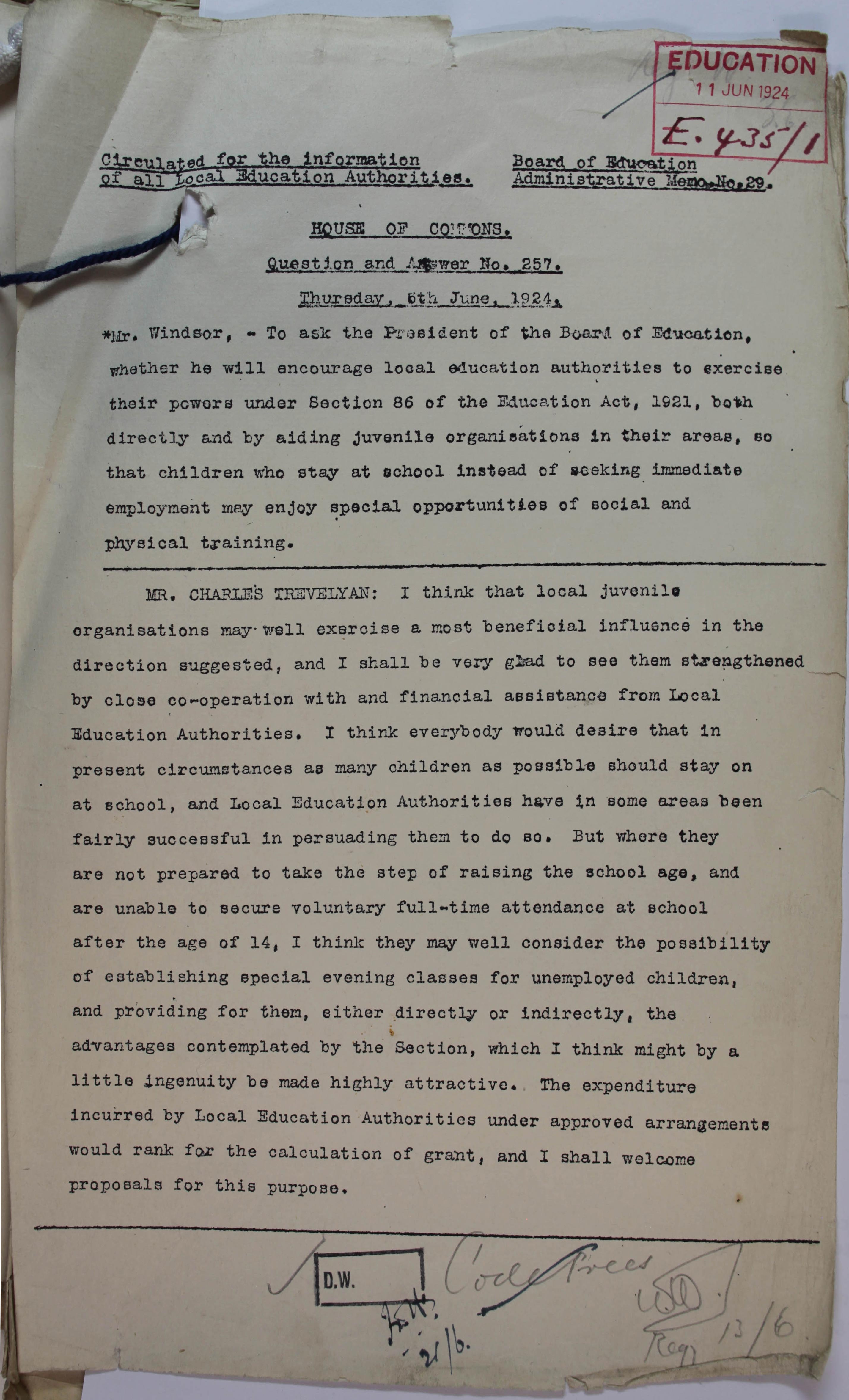
Question raised in the House of Commons, 11 June, 1924 about staying in school beyond 14yrs. This becomes a concern reflected in later education circulars regarding the support of voluntary organisations to reduce teenage unemployment. (Catalogue ref: ED 11/117)
Transcript
Circulated for the information of all Local Education Authorities
Board of Education Administrative Memo no.29
HOUSE OF COMMONS
Question and Answer No.257
Thursday, 5th June, 1924
Mr. Windsor- To ask the President of the Board of Education, whether he will encourage local education authorities to exercise their powers under Section 86 of the Education Act, 1921, both directly and by aiding juvenile organisations in their areas, so that children who stay at school instead of seeking immediate employment may enjoy special opportunities of social and physical training.
- CHARLES TREVELYAN: I think that local juvenile organisations may well exercise a most beneficial influence in the direction suggested, and I shall be very glad to see them strengthened by close co-operation with and financial assistance from Local Education Authorities. I think everybody would desire that in present circumstances as many children as possible should stay on at school, and Local Authorities have in some areas been fairly successful in persuading them to do so. But where they are not prepared to take the step of raising the school leaving age, and are unable to secure voluntary full-time attendance at school after the age of 14, I think they may well consider the possibility of establishing special evening classes for unemployed children, and providing for them, either directly or indirectly, the advantages contemplated by the Section, which I think might be a little ingenuity to be made attractive. The expenditure incurred by Local Education Authorities under approved arrangements would rank for the calculation of the grant, and I shall welcome proposals for this purpose.
